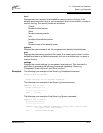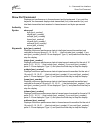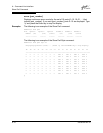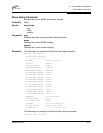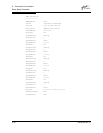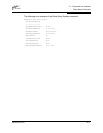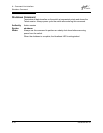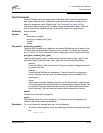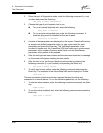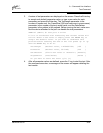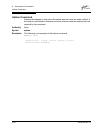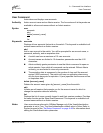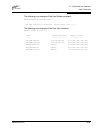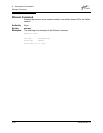
A – Command Line Interface
Test Command
59048-04 Rev. B A-79
D
Test Command
Tests I/O blades and ports using internal (SerDes level), external (transceiver),
and online loopback tests. Internal and external tests require that the port be
placed in diagnostic mode. Refer to the ”Set Command” on page A-32 for
information about changing the I/O blade or port administrative state. While the
test is running, the remaining ports on the switch remain fully operational.
Authority Admin session
Syntax test
blade [slot_number]
port [port_number] [test_type]
cancel
status
Keywords blade [slot_number]
Tests the ASIC registers and performs an internal SerDes test on all ports on the
I/O blade that occupies the slot given by [slot_number]. I/O blade slot numbers
are 1–4 and 6–9. The I/O blade must be in diagnostics mode to perform this test.
port [port_number] [test_type]
Tests the port given by [port_number] using the test given by [test_type]. If you
omit [test_type], Internal is used. [test_type] can have the following values:
internal
Tests the SerDes. This is the default. The port must be in diagnostics mode
to perform this test.
external
Tests both the SerDes and transceiver. The port must be in diagnostics
mode to perform this test, and a loopback plug must be installed in the
transceiver.
online
Tests communications between the port and its device node or device loop.
The port being tested must be online and connected to a remote device. The
port passes if the test frame that was sent by the ASIC matches the frame
that is received. This test does not disrupt communication on the port.
cancel
Cancels the online test in progress.
status
Displays the status of a test in progress, or if there is no test in progress, the
status of the test that was executed last.
Examples To run an internal or external port test, do the following:
1. To start an admin session, enter the following command and press the Enter
key.
admin start



